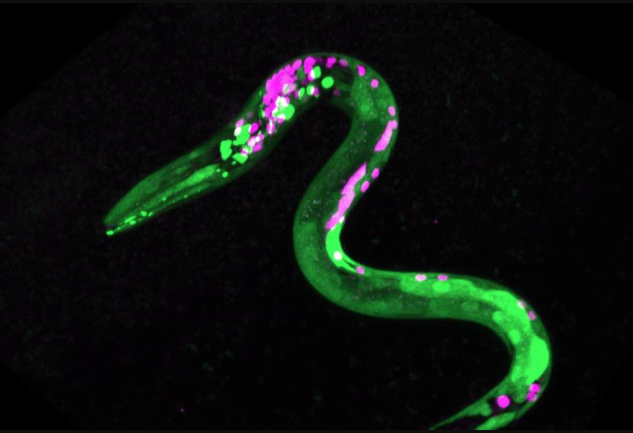Worms living near the site of the world’s most famous nuclear disaster seem to have developed new powers: Immunity to radiation.
In a new study, scientists visited Chernobyl to study nematodes, tiny worms with simple genetics that reproduce rapidly.
The researchers collected the worms from soil samples, rotting fruit and other materials and tested local radiation levels.

Radiation levels ranged from low levels that could be recorded in major cities to high levels found in space.
The scientists then took the worms to New York University to freeze and study them.
Dr. Sophia Tintor, lead author of the study, told the Daily Mail:
Chernobyl was a tragedy of unimaginable magnitude, but we still do not fully grasp the effects of the disaster on local populations.
Did sudden environmental change select for species, or even individuals within a species, that naturally show higher resistance to ionizing radiation?
Despite nearly 40 years of radiation since the 1986 disaster, animals continue to live in this part of Ukraine.
Previously, researchers have found that animals living in the Chernobyl Exclusion Zone are genetically different from the same species found elsewhere.
Matthew Rockman, professor of biology at New York University, added
These worms live everywhere and reproduce fast, so they have evolved over dozens of generations while a typical vertebrate is still taking its first steps.
The researchers found that despite the high radiation, the worms’ genomes were not damaged.
Dr. Tintori said this exciting discovery does not mean that Chernobyl is safe, but it shows that worms are resilient animals that can withstand extreme conditions.
Twenty genetically diverse worms were tested to examine DNA damage and see if they had an unusual ability to protect and repair their genetic material.
Dr. Tintori said the findings do not necessarily show that animals in Chernobyl were more tolerant or evolved, but the discoveries could lead to a better understanding of natural variation.
source: https://www.independent.co.uk/news


